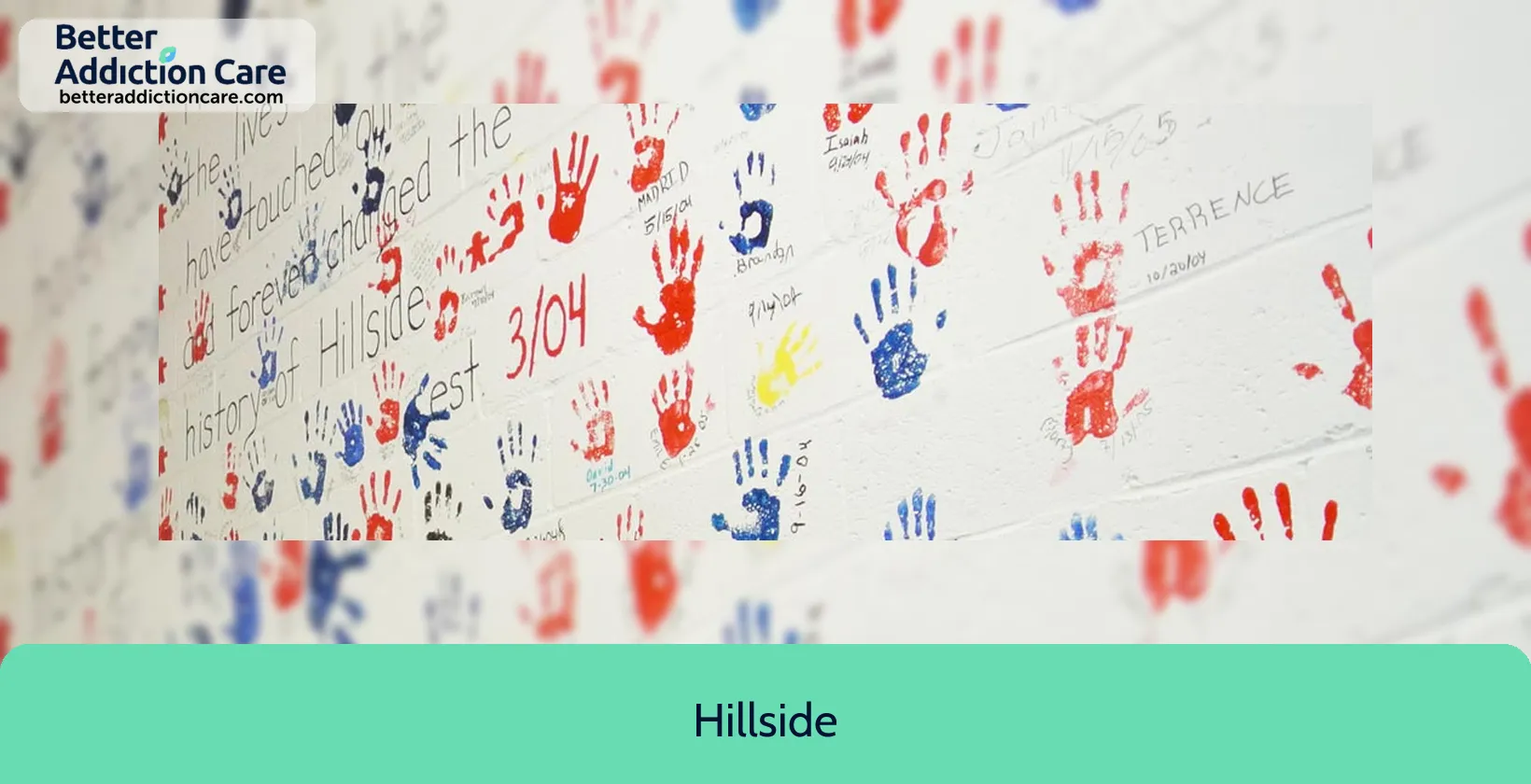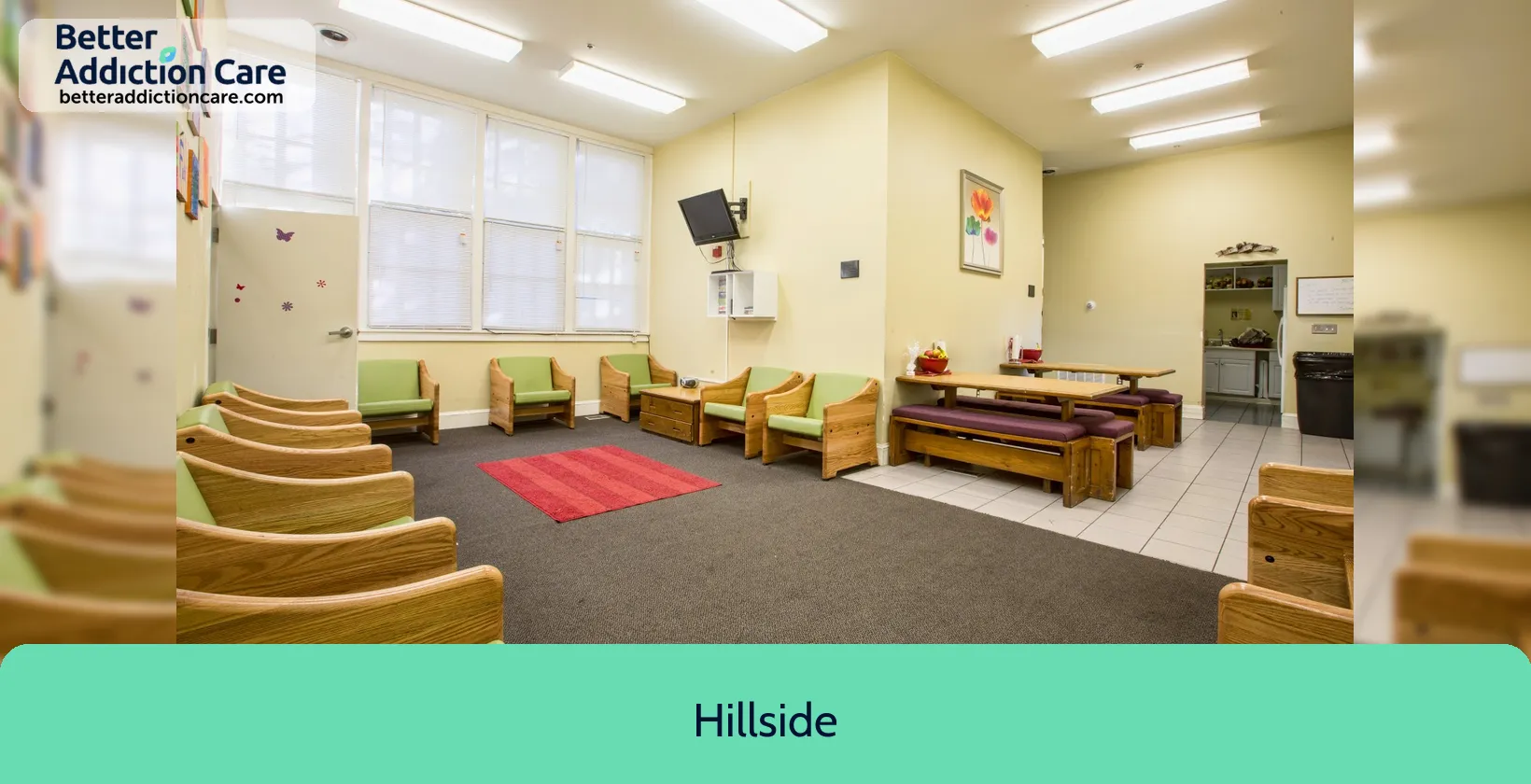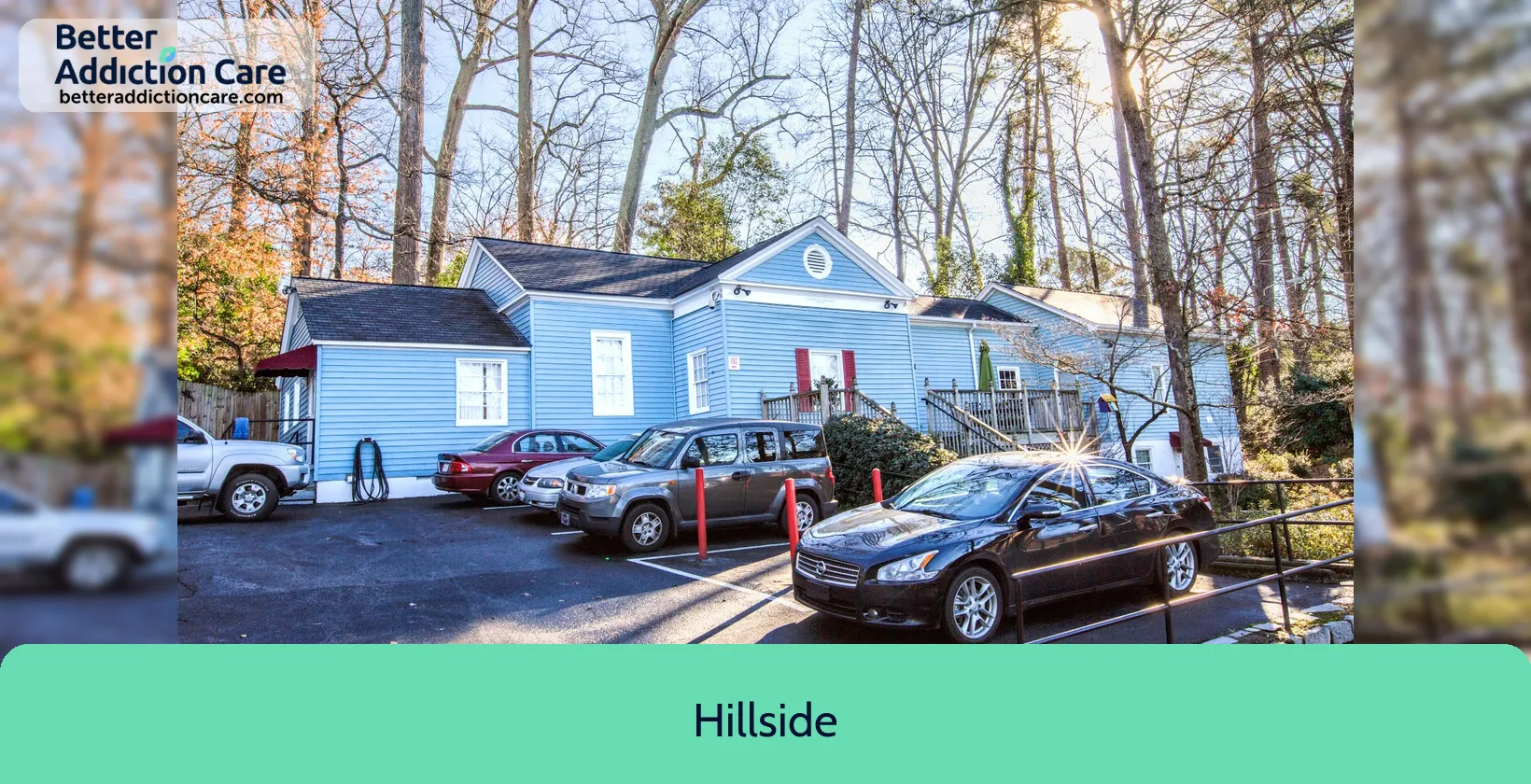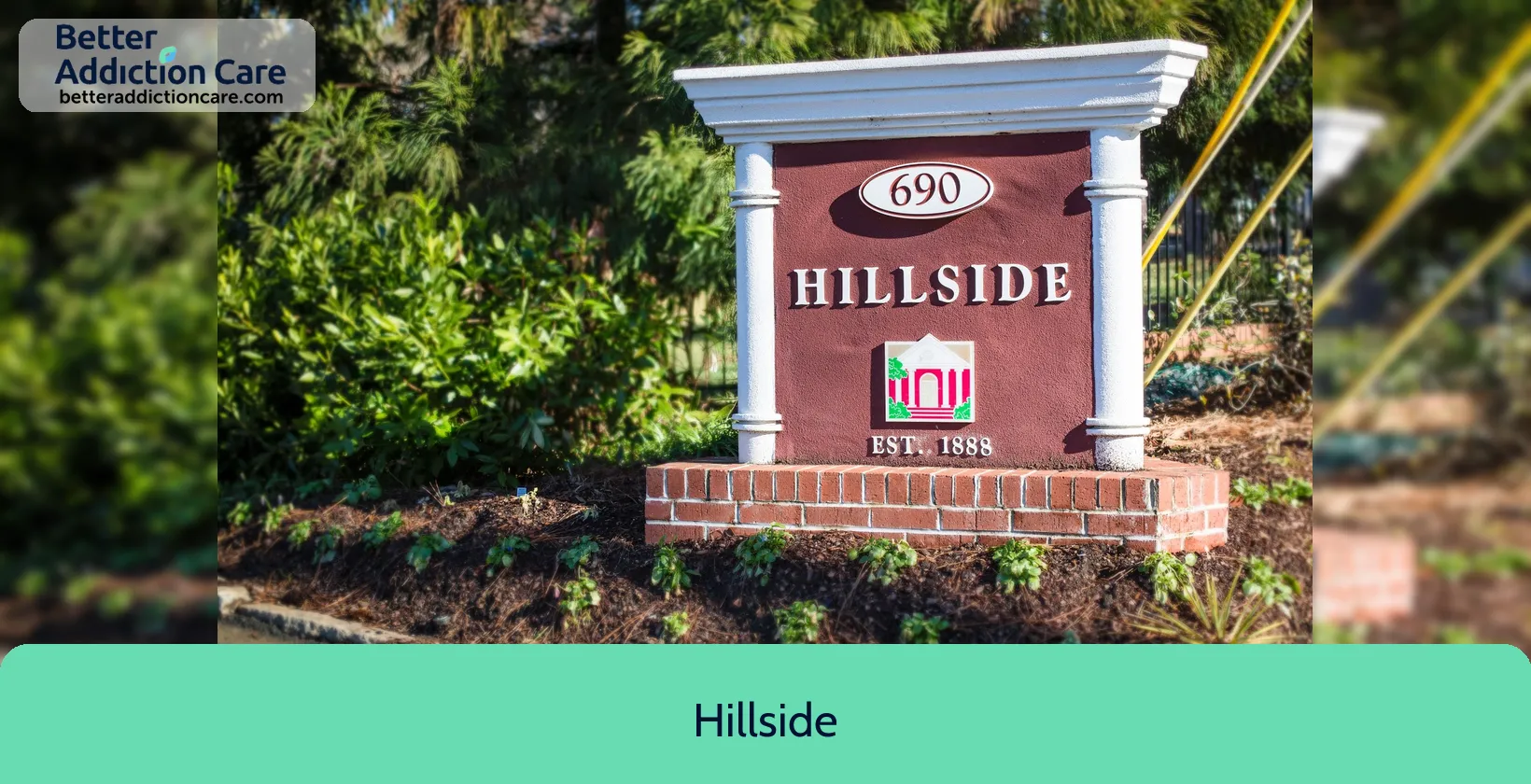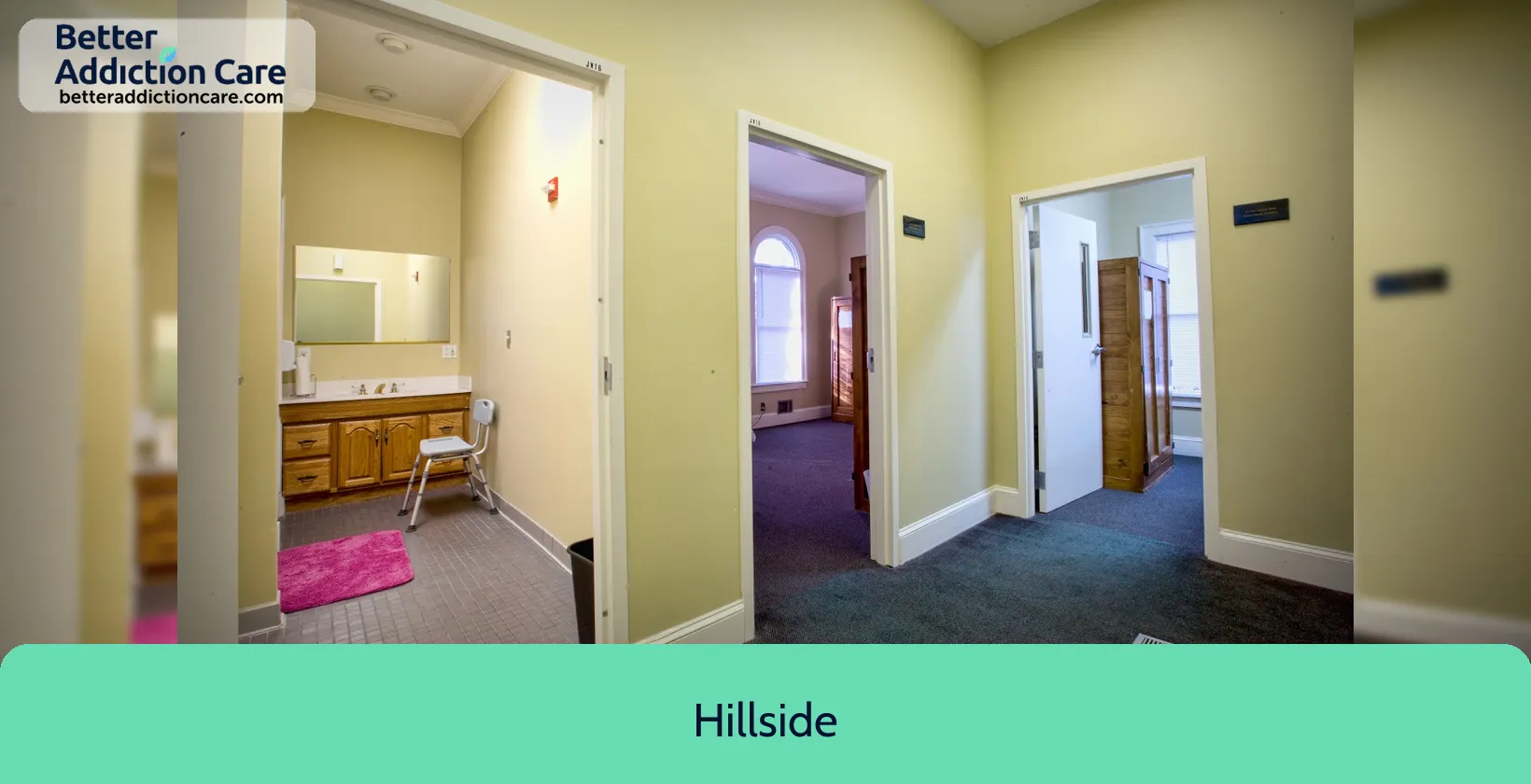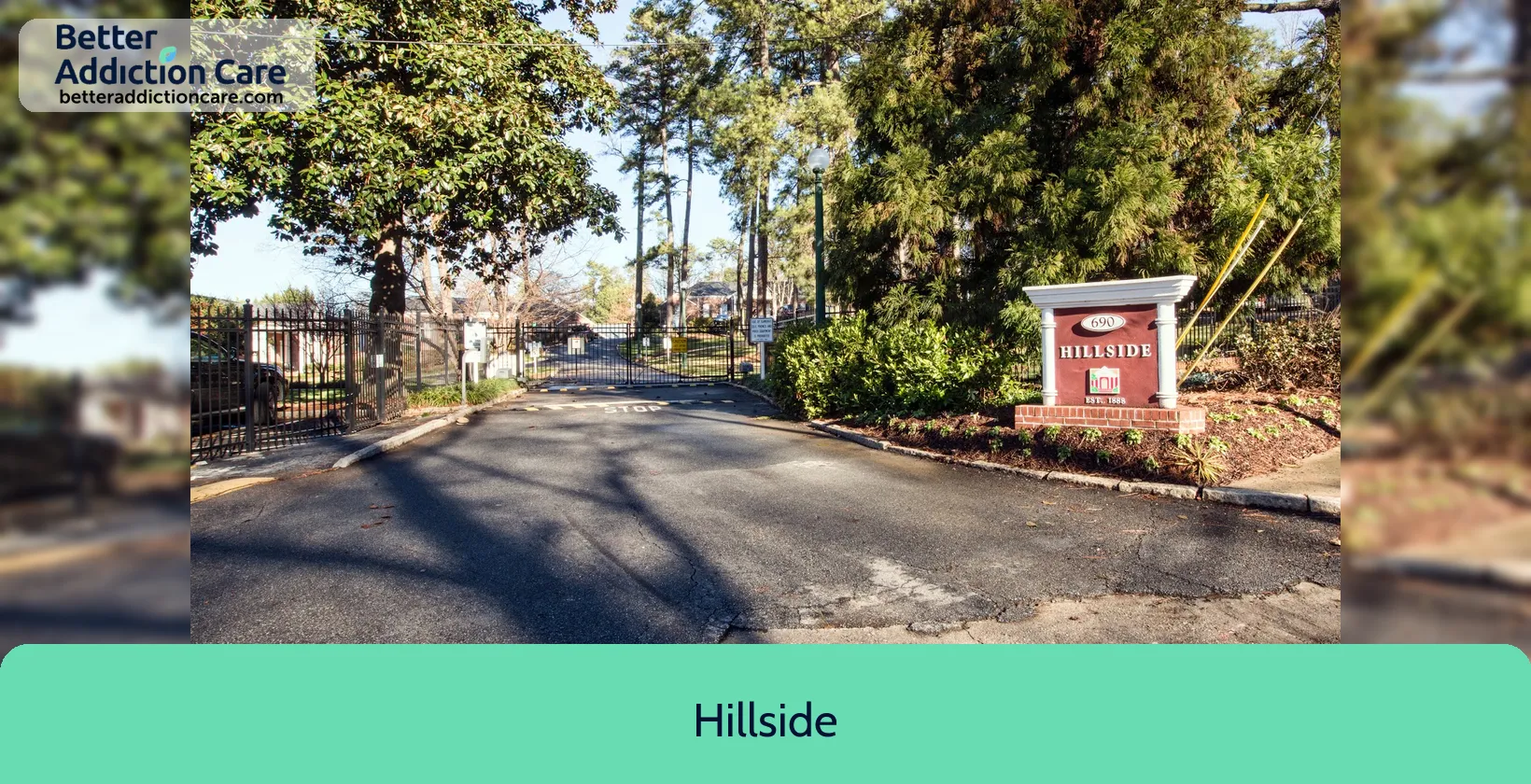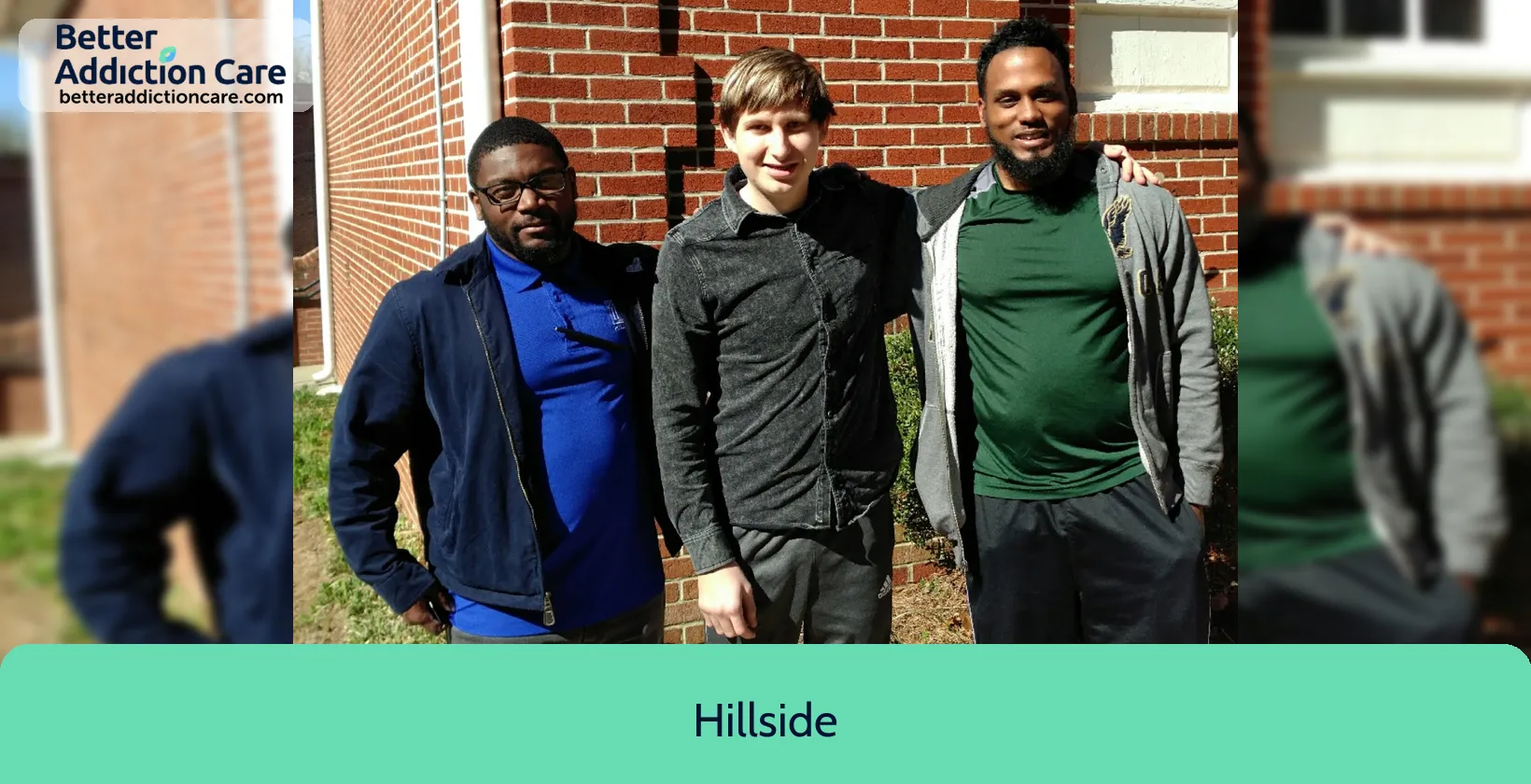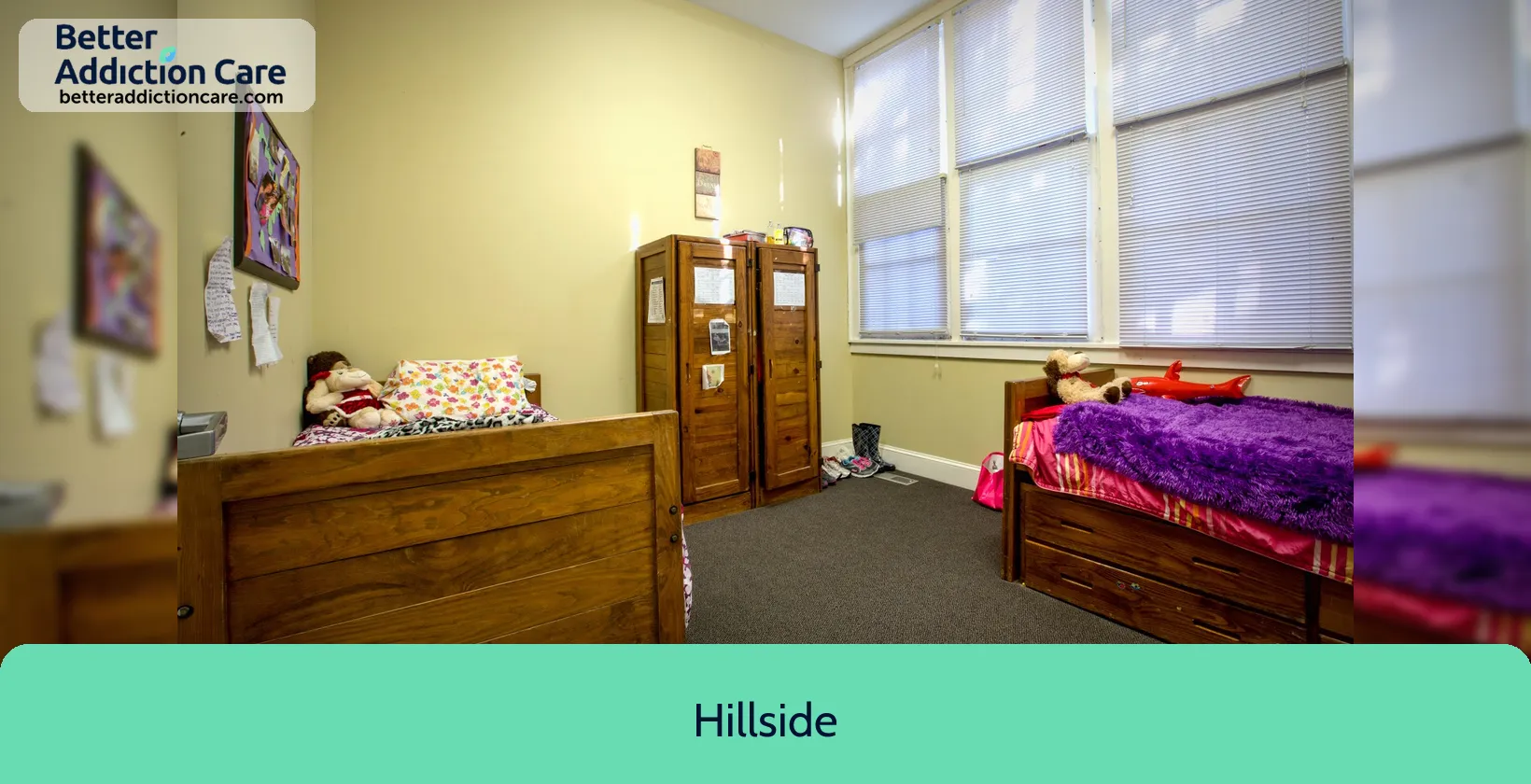Hillside
Overview
Hillside is a mental health treatment center for people seeking treatment near Fulton County. As part of their treatment modalities for recovery, Hillside provides couples/family therapy, group counseling, and cognitive behavioral therapy during treatment. Hillside is located in Atlanta, Georgia, accepting cash or self-payment for treatment.
Hillside at a Glance
Payment Options
- Cash or self-payment
- Medicaid
- State-financed health insurance plan other than Medicaid
- Private health insurance
- Federal military insurance (e.g., TRICARE)
Assessments
- Comprehensive mental health assessment
Age Groups
- Children/adolescents
Ancillary Services
- Case management service
- Education services
- Family psychoeducation
- Therapeutic foster care
Highlights About Hillside
6.65/10
With an overall rating of 6.65/10, this facility has following balanced range of services. Alcohol Rehabilitation: 8.00/10, Drug Rehab and Detox: 6.00/10, Insurance and Payments: 6.00/10, Treatment Options: 6.61/10.-
Alcohol Rehabilitation 8.00
-
Treatment Options 6.61
-
Drug Rehab and Detox 6.00
-
Insurance and Payments 6.00
Accreditations
The Joint Commission:

The Joint Commission accreditation for addiction and behavioral health is a prestigious recognition signifying a facility's commitment to delivering high-quality care and safety for individuals dealing with substance abuse and mental health issues. It involves rigorous evaluations and assessments, ensuring patients receive evidence-based treatment and exceptional care. This accreditation demonstrates a facility's dedication to continuous improvement and ethical practices, building trust among patients and healthcare professionals seeking top-tier addiction and behavioral health services.
Treatment At Hillside
Treatment Conditions
- Mental health treatment
Care Levels
- Hospital inpatient treatment
- Partial Hospitalization Program
- Outpatient
Treatment Modalities
- Couples/family therapy
- Group counseling
- Cognitive behavioral therapy
- Dialectical behavior therapy
- Activity therapy
Ancillary Services
Languages
- Sign language services for the deaf and hard of hearing
Special Programs
- Clients who have experienced trauma
- Children/adolescents with serious emotional disturbance (SED)
- Persons with post-traumatic stress disorder (PTSD)
- Persons with eating disorders
- Persons 18 and older with serious mental illness (SMI)
Get Help Now
Common Questions About Hillside
Contact Information
Other Facilities in Atlanta

7.00
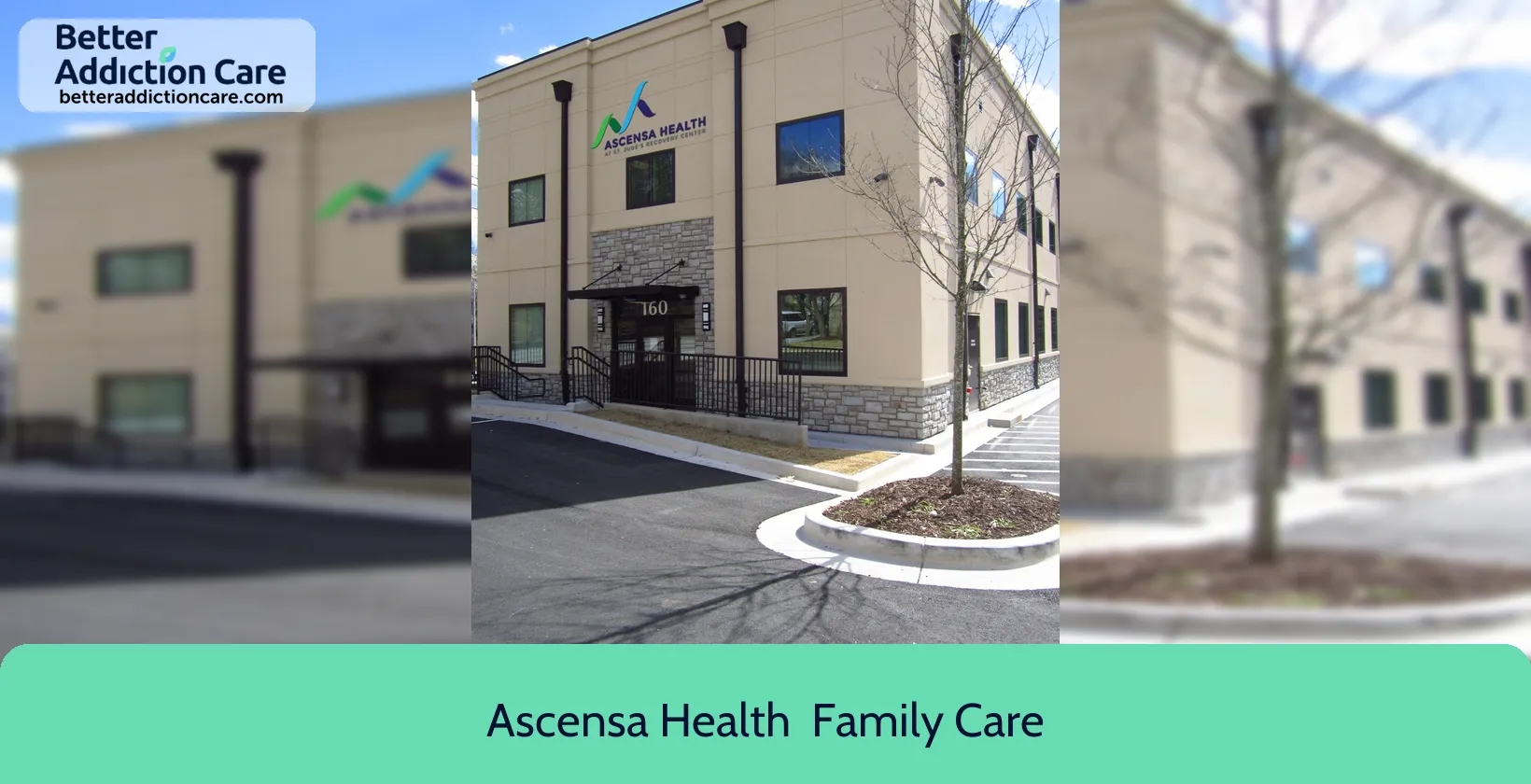
7.55
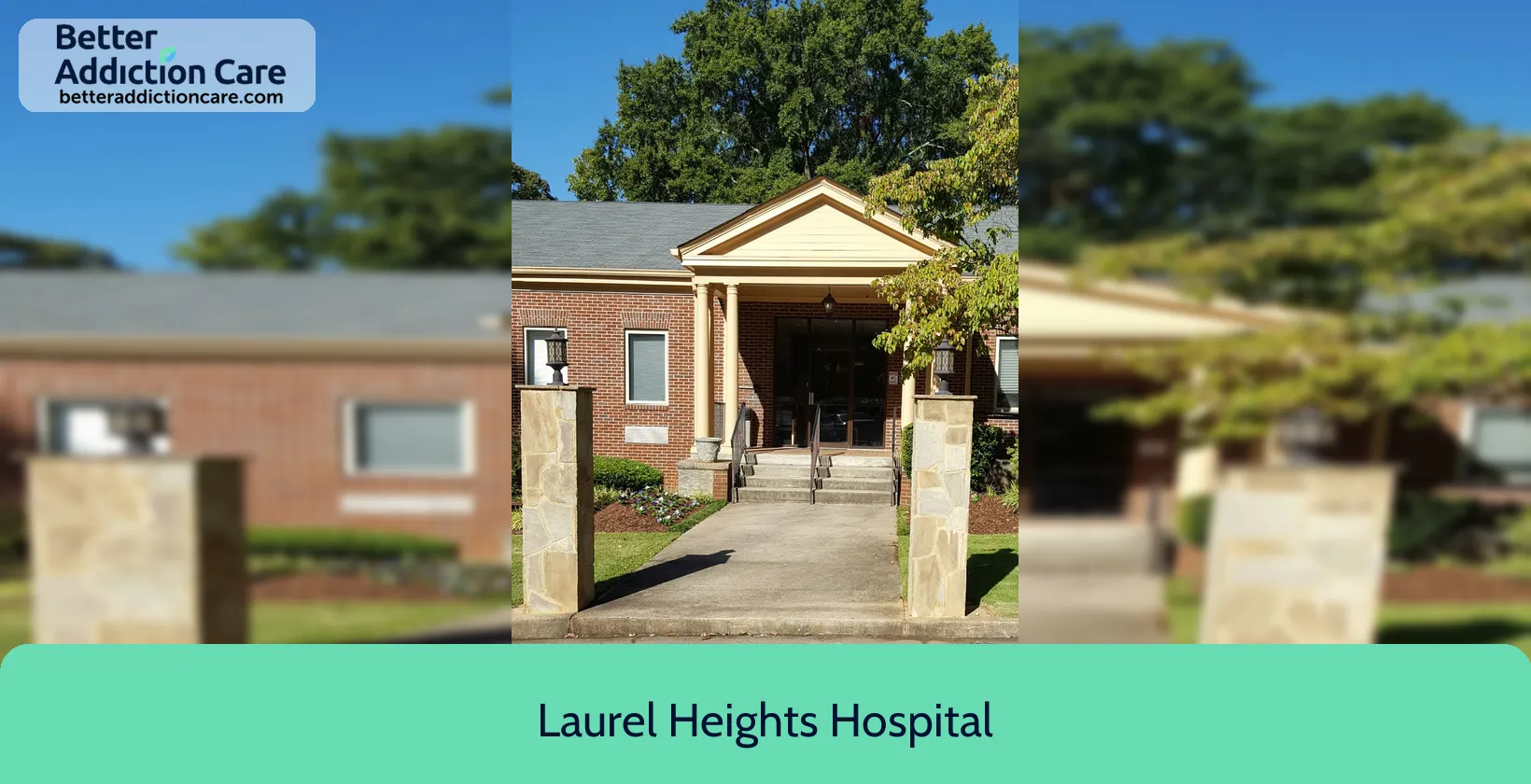
6.56
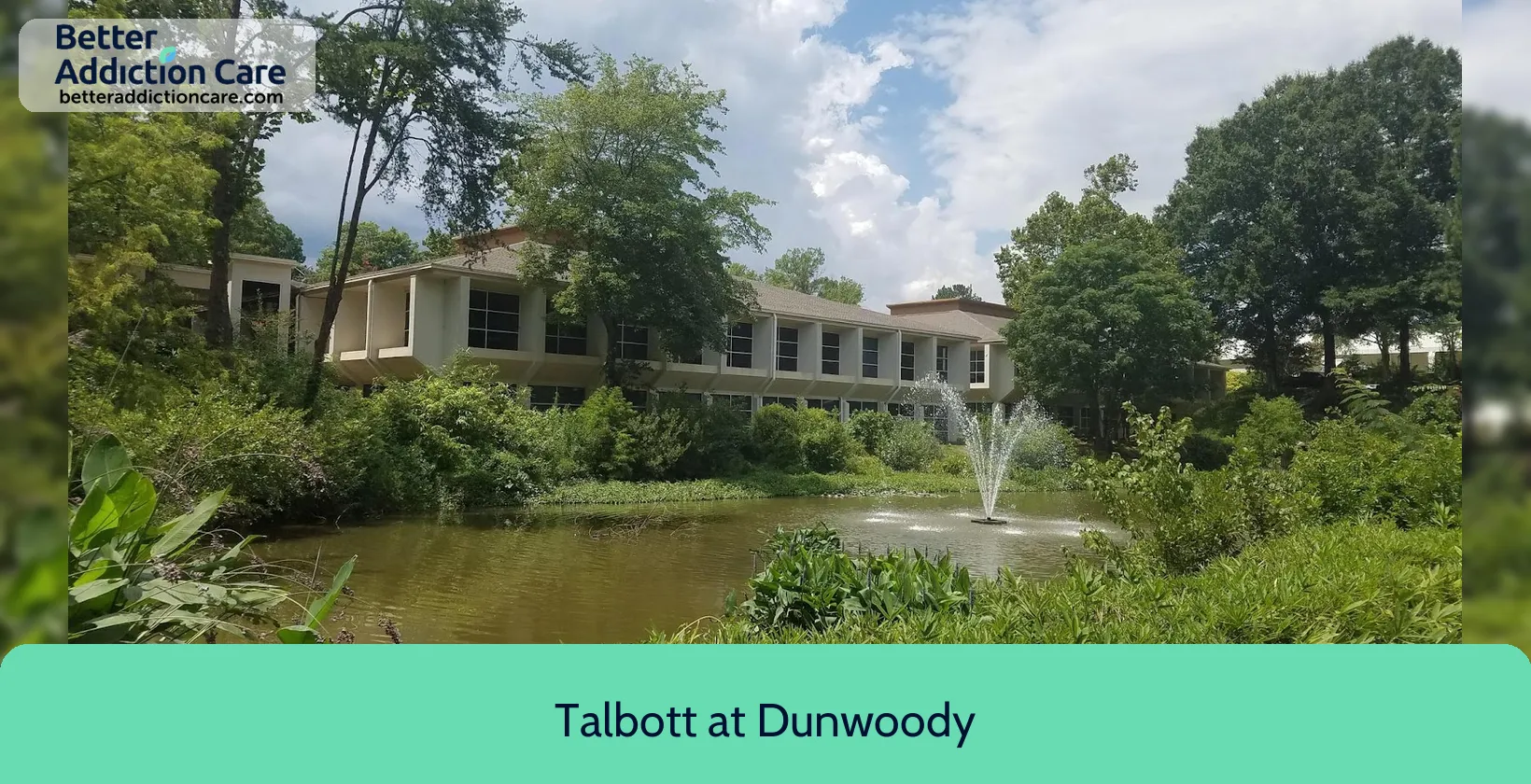
7.28

6.83
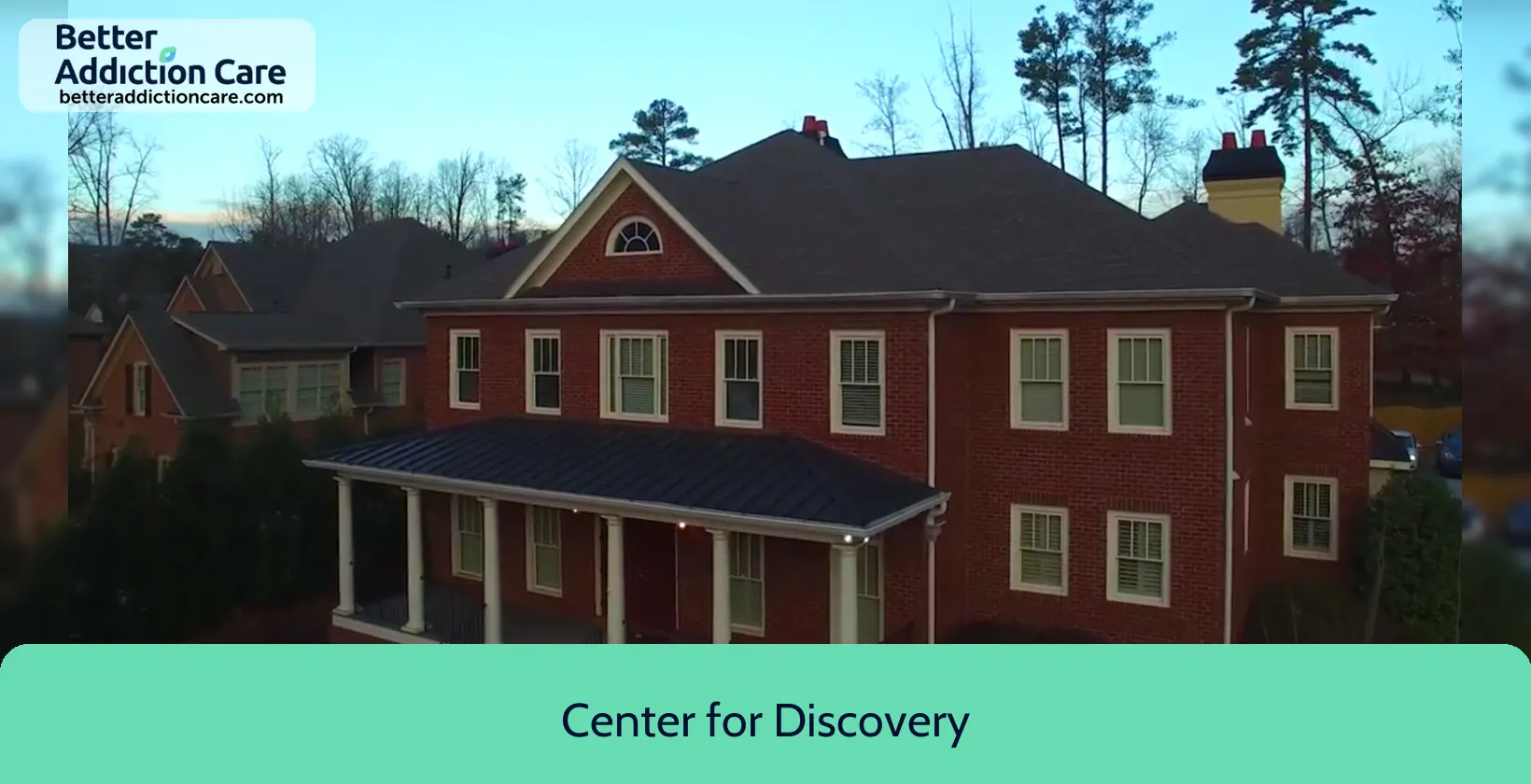
6.59
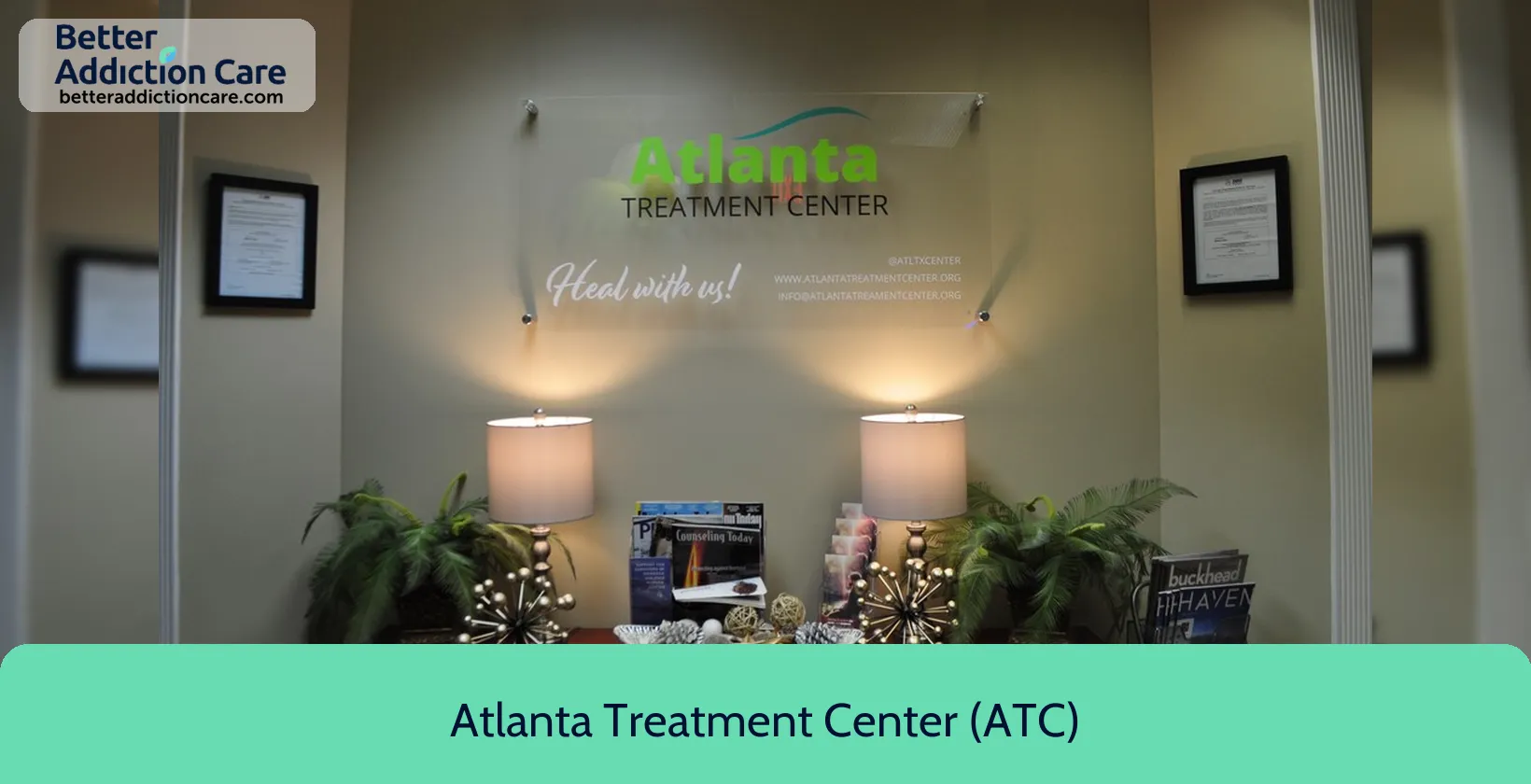
6.92
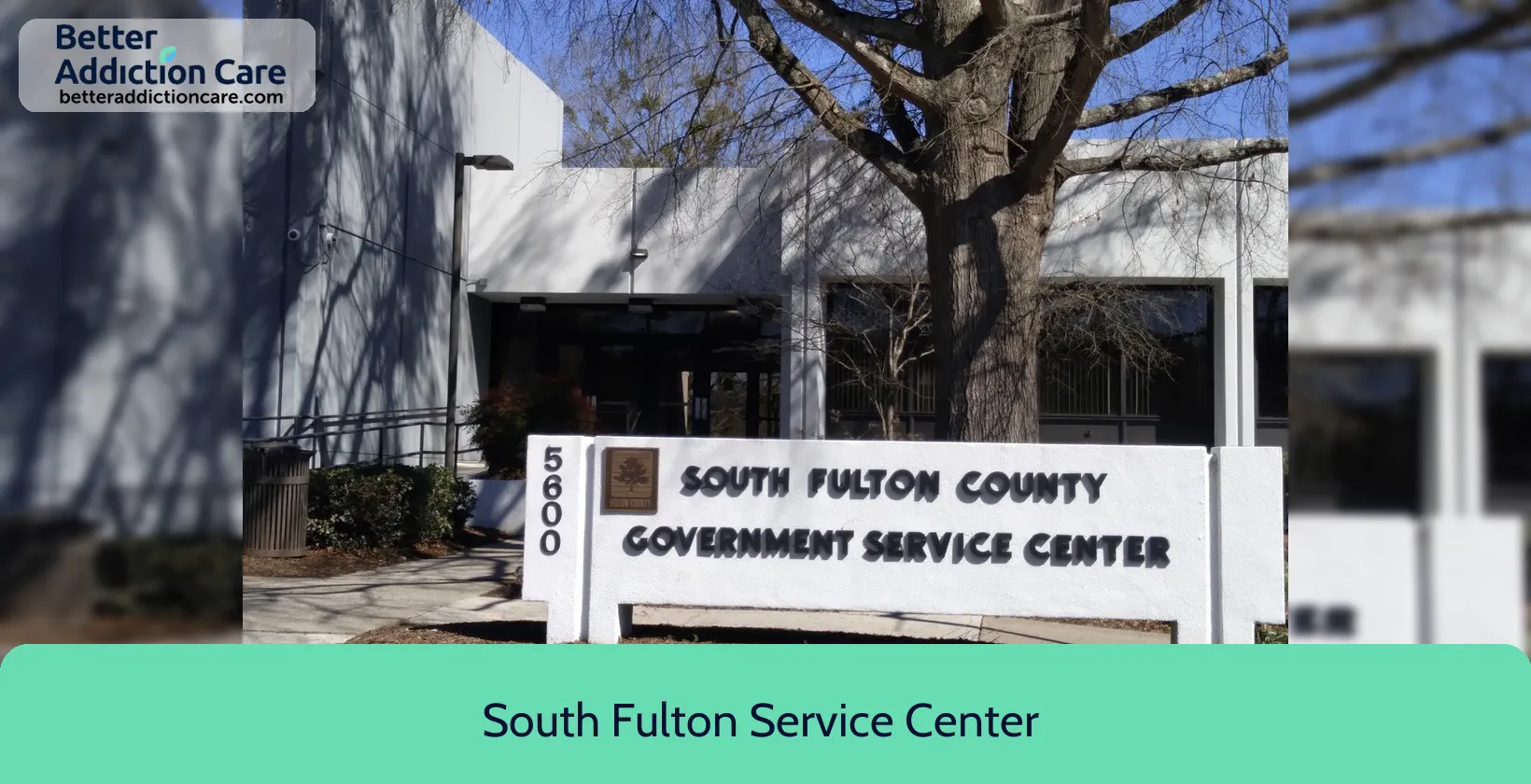
7.05
DISCLAIMER: The facility name, logo and brand are the property and registered trademarks of South Fulton Service Center - Adult Behavioral Health Services, and are being used for identification and informational purposes only. Use of these names, logos and brands shall not imply endorsement. BetterAddictionCare.com is not affiliated with or sponsored by South Fulton Service Center - Adult Behavioral Health Services.
